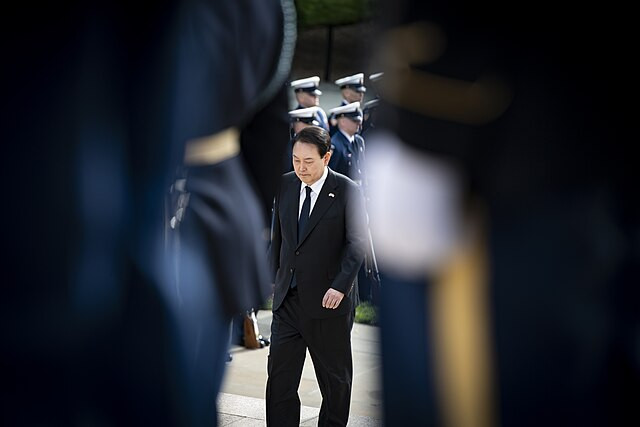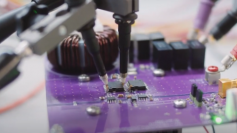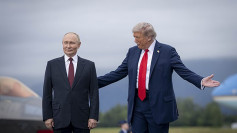South Korean President Yoon Suk Yeol is embroiled in a political firestorm after his abrupt imposition of martial law earlier this week triggered nationwide protests and allegations of insurrection. As opposition lawmakers push for impeachment and prosecutors launch investigations, Yoon's presidency faces its gravest challenge yet.
The controversy erupted late Tuesday when Yoon, citing a political impasse and alleged "pro-North Korean" threats, declared martial law, suspending civilian rule and deploying troops to parliament. The emergency decree, South Korea's first since 1980, was rescinded after six hours amid a swift backlash from lawmakers and the public. By Wednesday morning, the National Assembly had overwhelmingly rejected the measure, and protests were spreading across Seoul.
"This is a horrifying and shocking act of violence against democracy," said Kim Hye-Min, a protester outside parliament. "For the sake of my children, this must be stopped no matter what."
The fallout has been swift. Defense Minister Kim Yong-hyun, a key figure in the martial law declaration, resigned Wednesday, taking full responsibility. "All actions carried out regarding the Emergency Martial Law were following my orders and directives, and so I bear the full responsibility for them," Kim said in a statement. Yet questions remain about whether the decision originated with him or President Yoon.
Adding to the drama, prosecutors have launched an investigation into Yoon for potential insurrection charges, a crime that transcends presidential immunity and carries the death penalty. Defense Minister Kim has been banned from leaving the country as part of the probe. Yoon's approval ratings, already at a dismal 19% last week, are expected to plunge further.
The martial law declaration included measures to ban political activities, censor media, and deploy troops to enforce order, actions reminiscent of South Korea's authoritarian past. Army Chief of Staff Gen. Park Ahn-soo, appointed martial law commander, testified to lawmakers that he learned of the order from Yoon's televised address. "I have never had any intention of turning arms against the people of this nation," Park said, distancing himself from the controversial decision.
The crisis has galvanized opposition lawmakers, who submitted an impeachment motion against Yoon on Wednesday. The vote, scheduled for Saturday, requires a two-thirds majority in the 300-member National Assembly to pass. While opposition parties hold 192 seats, they would need at least eight defections from Yoon's People Power Party (PPP) to succeed. PPP leaders have publicly opposed the impeachment but remain divided, with an anti-Yoon faction signaling dissent.
If the motion passes, Yoon's powers would be suspended, and Prime Minister Han Duck-soo would assume presidential duties until the Constitutional Court decides on the impeachment. The court has 180 days to deliver its ruling.
Observers, including Rob York of the Pacific Forum think tank, see little path for Yoon to recover politically. "The Korean public is not inclined to give him the benefit of the doubt," York said, predicting Yoon's approval ratings could fall into single digits.
Public demonstrations against Yoon's actions have intensified. Candlelight vigils and protests outside the presidential office have drawn crowds decrying the return to autocratic governance. Some, including a marine veteran and his wife, shaved their heads in protest, a traditional act of defiance in South Korea.
Internationally, Yoon's declaration has drawn criticism. U.S. Deputy Secretary of State Kurt Campbell described the decision as a "deeply illegitimate process," adding that the bipartisan rejection of martial law underscored South Korea's democratic resilience. Secretary of State Antony Blinken emphasized the importance of resolving the crisis peacefully and within the framework of the law.
The political turmoil has also rattled financial markets, with South Korea's benchmark KOSPI index experiencing volatility and suspected state intervention to stabilize the won. Yoon, who has remained out of public view since his televised address, faces mounting pressure to step down.






